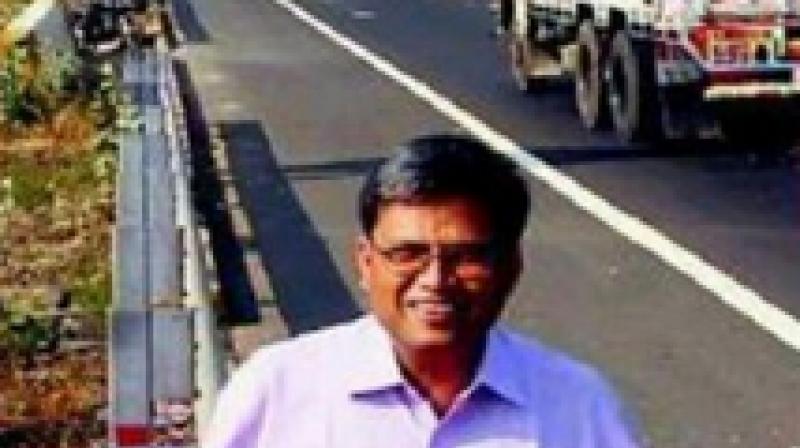Man behind unified helpline number on highway gets Padma Shri

Ahmedabad: In August 1999, Vadodara-based doctor Subroto Das's car hit a tree beside a highway in the dead of the night, leaving three persons injured. But help arrived only after a harrowing wait of nearly five hours.
The helplessness that he and two of his co-travellers experienced on that day led to an initiative that has changed the way a highway accident victim in Gujarat receives help at the earliest possible time.
"We were on our way to Vadodara when our car hit a tree on the roadside at around 1:30 in the night. All three of us on the car were injured and helpless, but help came only after nearly five hours when dawn broke and a milkman took us to the nearest police station," recalls Dr Das.
Das is this year's recipient of the prestigious Padma Shri, the fourth highest civilian award in the country.
"We were lucky to be alive, but wanted to make sure that others do not die on the highway for want of timely help.
We brainstormed till July 2002 and decided that instead of putting ambulances on the highway, lets create a network of ambulances, fire brigade and cranes," he says.
A number, 9825026000 was launched in August 2002 which a person looking for help on the highway can call up, after which the nearest utility (ambulances, cranes, fire brigade) is contacted and rushed there.
Das launched an NGO Lifeline Foundation, which started the helpline service starting with Ahmedabad-Surat highway, and gradually expanding it to cover entire state, and also taking it to Maharashtra, Rajasthan, Kerala and West Bengal. The service is provided free of cost.
"Our next aim was to create a unified helpline number for all states, a concept which did not exist in 2002. The idea caught up and a lot of corporates and bureaucrats started supporting us," he recalls.
Further brainstorming led to the Gujarat Emergency Medical Services Act in 2007, making Gujarat the first state to have an Act for emergency medical services, he says.
Following this, a unified number, 108 for emergency medical service was launched, for which his NGO provided the state government with technical expertise.
"We then spoke to other states in India to launch a similar service, and today 26 states in India have 108 helpline number," he says.
Das is now working on creating a standard protocol for treatment, and also training paramedics.
As part of the Smart City initiative, Das is now aiming to train 40 per cent literate and physically able Barodians for Bystander CPR (to help a person who suffers cardiac arrest before medical service reaches), and First Aid, in another five years.
"With recognition, we will be able to do it effectively with help coming in easy from government and corporates," he says.

